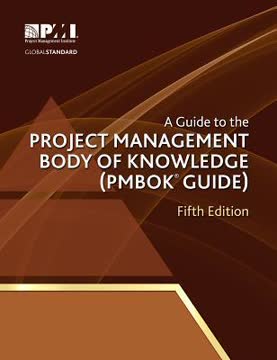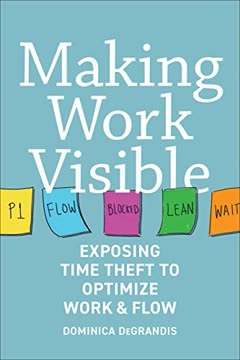Key Takeaways
1. Project Management is Essential in the Modern Workplace
Project management is the work of the twenty-first century. This means that everyone is a project manager.
The rise of the unofficial project manager. In today's workplace, 60-80% of most professionals' time is spent on project-based work, yet very few have formal project management training. This has given rise to the "unofficial project manager" – individuals who are expected to lead projects without the official title or training.
The cost of project failure. According to the Project Management Institute (PMI):
- Only 8% of organizations are "high performers" in managing projects
- 45% of projects are either overdue or canceled
- Only 45% of projects meet their goals
- For every $100 invested in projects worldwide, there's a net loss of $13.50
The need for a new approach. Traditional project management focuses heavily on process, but in the 21st century, success requires equal emphasis on leading people. This book provides a reliable formula to help unofficial project managers manage projects and lead people effectively, combining essential project management principles with leadership skills to inspire and engage team members.
2. People + Process = Success: The Formula for Effective Project Management
Project management is as much about effectively leading people as it is about skillfully managing a process.
Balancing people and process. Successful project management requires mastery of both the technical aspects (process) and the human elements (people). Many project managers excel at one but struggle with the other. Recognizing your natural inclination and working to develop skills in both areas is crucial.
The importance of informal authority. As an unofficial project manager, you often lack formal authority over team members. Developing informal authority – the ability to inspire and influence others without relying on a title or position – is essential. This comes from demonstrating strong character, integrity, and leadership skills.
The Four Foundational Behaviors. To build informal authority and engage team members, focus on mastering these behaviors:
- Demonstrate respect
- Listen first
- Clarify expectations
- Practice accountability
These behaviors, when consistently applied, create trust, improve communication, and increase team engagement, leading to better project outcomes.
3. Initiate Projects by Clarifying Shared Expectations
You must clarify a shared and measurable set of expectations.
The critical importance of initiation. The initiation phase is the most crucial stage of project management. Even small misunderstandings at this stage can lead to significant problems later, a principle known as "sensitivity to initial conditions."
Key steps in project initiation:
- Identify all stakeholders
- Identify key stakeholders using the D.A.N.C.E. tool (Decisions, Authority, Need, Connections, Energy)
- Interview key stakeholders effectively
- Create a clear Project Scope Statement
The power of frontloading. Investing time upfront to clarify expectations, identify potential risks, and align stakeholders pays enormous dividends throughout the project. This "frontloading" approach reduces the need for costly and time-consuming "backloading" – fixing problems and realigning expectations later in the project.
4. Plan Projects with a Clear Roadmap for Smart Decision Making
You must create a clear road map for smart decision making.
Risk management strategy. Begin planning by identifying and assessing potential risks. Use the TAME approach to manage high-priority risks:
- Transfer the risk
- Accept the risk
- Mitigate the risk
- Eliminate the risk
Creating a project schedule. Develop a Work Breakdown Structure (WBS) to break the project into manageable components. Sequence activities, identify the project team, estimate task durations, and determine the critical path. Use tools like Gantt charts to visualize the project timeline.
The importance of communication. Develop a clear communication plan that outlines how, when, and to whom project information will be disseminated. This ensures all stakeholders remain informed and engaged throughout the project lifecycle.
5. Execute Projects Through Consistent Team Accountability
Engage people through consistent and shared accountability.
The power of accountability. Successful execution relies on creating a culture of accountability within the project team. This means not only holding team members responsible for their commitments but also modeling accountability as a project leader.
Team Accountability Sessions. Implement weekly Team Accountability Sessions to:
- Review the project plan and overall progress
- Report on last week's commitments
- Make new commitments for the coming week
- Identify and address roadblocks
Handling performance issues. When team members struggle to meet commitments, use the Four Foundational Behaviors to address the issue respectfully and constructively. Have Performance Conversations that focus on:
- Clarifying expectations
- Understanding obstacles
- Collaboratively finding solutions
- Setting clear action items for improvement
6. Monitor and Control Projects with Transparent Communication
Drive progress through transparent communication.
Balancing monitoring and control. Effective project managers find the right balance between abandonment (leaving the team to struggle alone) and micromanagement (crushing team initiative). Consistently monitor progress and control the project to prevent it from drifting into chaos.
The Project Status Report. Use regular status reports to keep stakeholders informed and address issues proactively. Include:
- Overall project health (green, yellow, or red status)
- Key accomplishments
- Upcoming milestones
- Risks and issues
- Actions needed from stakeholders
Managing scope creep. Use a formal change request process to evaluate proposed changes to the project scope. Consider the impact on time, budget, quality, and resources before approving changes. Be prepared to say "no" respectfully when necessary to protect the project's integrity.
7. Close Projects by Measuring Success and Learning Lessons
Measure success and get better.
The importance of formal closure. Properly closing a project is crucial for:
- Evaluating success against initial goals
- Documenting lessons learned
- Recognizing team contributions
- Setting the stage for future projects
Key steps in project closure:
- Evaluate the task list to ensure all deliverables are complete
- Confirm fulfillment of the project scope
- Complete procurement closure (settle contracts, pay bills)
- Document lessons learned
- Submit a final status report and obtain stakeholder signatures
- Archive project documents for future reference
- Publish and celebrate project success
Learning from experience. Conduct a thorough "lessons learned" session with the team to identify what went well and areas for improvement. This knowledge becomes invaluable for future projects and contributes to the organization's project management maturity.
8. Develop Informal Authority Through Four Foundational Behaviors
Informal authority inspires people to want to play on your team and win.
The power of informal authority. As an unofficial project manager, your ability to influence and inspire others without relying on formal power is crucial. Mastering the Four Foundational Behaviors is key to developing this informal authority.
The Four Foundational Behaviors in action:
- Demonstrate respect: Value team members' contributions and treat everyone with dignity.
- Listen first: Seek to understand before being understood. Practice empathy and active listening.
- Clarify expectations: Ensure everyone has a clear, shared understanding of project goals and individual responsibilities.
- Practice accountability: Hold yourself and others responsible for commitments. Address issues promptly and constructively.
Continuous improvement. Developing informal authority is an ongoing process. Consistently practicing these behaviors builds trust, enhances communication, and creates a positive team culture. This not only leads to better project outcomes but also personal growth as a leader.
Last updated:
FAQ
What's "Project Management for the Unofficial Project Manager" about?
- Focus on Unofficial Managers: The book is designed for individuals who manage projects without formal training or the title of a project manager.
- Practical Guidance: It provides a blueprint for managing projects effectively, focusing on both people and processes.
- Seven Chapters: The content is structured into seven chapters, each addressing a different aspect of project management.
- Real-World Application: The book includes real-life stories and examples to illustrate the principles and practices discussed.
Why should I read "Project Management for the Unofficial Project Manager"?
- Improve Project Skills: It helps you transition from an amateur to an adept project manager by providing practical tools and techniques.
- Address Workplace Challenges: The book tackles common workplace challenges like organizing projects on the fly and leading teams without formal authority.
- Enhance Career Impact: Following the advice in the book can have a positive impact on your career by improving your project management skills.
- Focus on People: It emphasizes the importance of the 'people' aspect in project management, which is often overlooked.
What are the key takeaways of "Project Management for the Unofficial Project Manager"?
- People + Process = Success: Successful project management requires a balance between managing processes and leading people.
- Four Foundational Behaviors: Demonstrating respect, listening first, clarifying expectations, and practicing accountability are crucial for informal authority.
- Five Process Groups: Initiate, Plan, Execute, Monitor and Control, and Close are essential steps in managing any project.
- Risk Management: Identifying, assessing, and managing risks are vital to prevent project failure.
What are the best quotes from "Project Management for the Unofficial Project Manager" and what do they mean?
- "Manage things. Lead people." This emphasizes the dual role of a project manager in handling both tasks and team dynamics.
- "Character is who you are under pressure, not when everything is fine." It highlights the importance of maintaining integrity and composure in challenging situations.
- "A cadence of visibility and accountability produces not only reliable results again and again, but also a high-performance team." This underscores the value of regular check-ins and accountability in project success.
- "The cause of almost all relationship difficulties is rooted in conflicting or ambiguous expectations around roles and goals." It stresses the need for clear communication and expectation setting.
How does "Project Management for the Unofficial Project Manager" define an unofficial project manager?
- Role Without Title: An unofficial project manager is someone who manages projects without having the formal title or training.
- Common in Workplaces: Many knowledge workers find themselves in this role, managing projects that are not officially recognized.
- Lack of Training: These individuals often lack formal project management training, making resources like this book valuable.
- Significant Impact: Despite the lack of formal recognition, unofficial project managers play a crucial role in organizational success.
What is the "People + Process = Success" formula in "Project Management for the Unofficial Project Manager"?
- Balanced Approach: The formula emphasizes the need to balance managing processes with leading people for project success.
- Process Alone Isn't Enough: While a good process is essential, it must be complemented by effective leadership and team engagement.
- Engagement and Morale: Focusing on people helps build team morale and engagement, which are critical for successful project outcomes.
- Replicable Success: By mastering both aspects, unofficial project managers can replicate success across different projects.
What are the Four Foundational Behaviors in "Project Management for the Unofficial Project Manager"?
- Demonstrate Respect: Treat team members with respect to foster a positive and productive work environment.
- Listen First: Prioritize listening to understand team members' perspectives and challenges before responding.
- Clarify Expectations: Clearly communicate roles, goals, and expectations to avoid misunderstandings and conflicts.
- Practice Accountability: Hold yourself and others accountable for commitments to build trust and ensure project success.
How does "Project Management for the Unofficial Project Manager" suggest managing risks?
- Identify Risks: Begin by brainstorming potential risks that could impact the project.
- Assess Impact and Probability: Evaluate each risk based on its potential impact and likelihood of occurrence.
- TAME the Risks: Use the TAME strategy to Transfer, Accept, Mitigate, or Eliminate risks.
- Document and Communicate: Create a risk management plan to document strategies and communicate them to the team.
What is the role of a Project Scope Statement in "Project Management for the Unofficial Project Manager"?
- Defines Project Boundaries: The scope statement outlines the project's purpose, description, desired results, exclusions, and constraints.
- Guides Decision-Making: It serves as a reference for making decisions and ensuring all stakeholders have a common understanding.
- Prevents Scope Creep: By clearly defining what is included and excluded, it helps prevent the project from expanding uncontrollably.
- Requires Stakeholder Approval: The scope statement should be reviewed and approved by key stakeholders to ensure alignment.
How does "Project Management for the Unofficial Project Manager" recommend handling scope changes?
- Evaluate Impact: Assess how the proposed change will affect the project's time, cost, quality, and resources.
- Use a Change Request Process: Document the change request and its implications before seeking approval.
- Involve Stakeholders: Engage key stakeholders in the decision-making process to ensure buy-in and support.
- Balance Flexibility and Control: Be open to necessary changes while maintaining control over the project's scope and objectives.
What is the importance of a Team Accountability Session in "Project Management for the Unofficial Project Manager"?
- Regular Check-Ins: These sessions provide a regular opportunity to review progress and address any issues.
- Promotes Transparency: They ensure that all team members are aware of the project's status and any challenges.
- Encourages Commitment: By making and reviewing commitments, team members are more likely to stay engaged and accountable.
- Facilitates Problem-Solving: The sessions provide a forum for discussing obstacles and finding solutions collaboratively.
How does "Project Management for the Unofficial Project Manager" suggest closing a project?
- Evaluate Task Completion: Review the task list to ensure all project activities are completed.
- Confirm Scope Fulfillment: Verify that the project has met its goals and delivered the expected results.
- Document Lessons Learned: Capture insights and lessons from the project to improve future performance.
- Celebrate Success: Recognize and reward the team's efforts to boost morale and encourage continued excellence.
Review Summary
Project Management for the Unofficial Project Manager receives mostly positive reviews for its accessible introduction to project management concepts. Readers appreciate its practical advice, real-world examples, and simple language. Many find it helpful for those new to project management or in unofficial roles. Some criticize its simplicity and reliance on quotes from other sources. Overall, reviewers recommend it as a solid primer for beginners, praising its concise coverage of essential project management principles and leadership skills.
Similar Books









Download PDF
Download EPUB
.epub digital book format is ideal for reading ebooks on phones, tablets, and e-readers.






